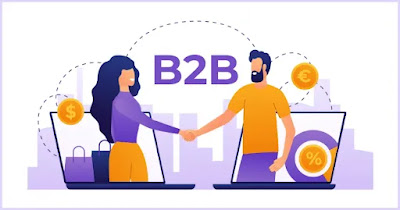Why 87% of B2B Companies Fail at Loyalty Programs (And How to Win)
Here's a sobering reality check: Your biggest competitor just poached three of your top clients. Not because they offered better prices or superior products, but because those clients felt completely forgotten by your company. Meanwhile, you're scratching your head wondering what went wrong.
If this sounds familiar, you're part of the 87% of B2B companies whose loyalty initiatives are failing spectacularly. But here's the kicker – it's not because loyalty doesn't work in B2B. It's because most businesses are doing it completely wrong. While you're sending generic holiday cards and hosting boring annual dinners, smart companies are using strategic b2b loyalty platform solutions to turn clients into raving fans who actually refer to new business.
The difference between winning and losing isn't about budget or resources. It's about understanding what modern B2B buyers actually want from their vendor relationships. And trust me, it's not another branded coffee mug.
5 Fatal Mistakes That Kill B2B Loyalty Platform Success
1. Treating B2B Clients Like B2C Consumers
This is the biggest mistake companies make with their b2b loyalty schemes. They copy consumer programs and wonder why business clients don't care about points, badges, or discount coupons. B2B buyers aren't motivated by the same things as individual consumers.
Business clients want rewards that make them look good to their boss, help them solve problems faster, or give them a competitive edge. They care about efficiency, results, and professional growth – not collecting points for free t-shirts.
The companies that get this right offer rewards like priority support during critical projects, exclusive access to industry research, or direct lines to senior executives. These perks have real business value that clients can't get anywhere else.
2. Making Everything About Your Company Instead of Their Success
Most b2b rewards programs are thinly disguised marketing efforts. Companies offer "exclusive" webinars that are basically sales pitches, or reward clients with branded merchandise that ends up in the trash.
Successful programs flip this script entirely. Instead of promoting your company, they focus on making your clients more successful. This might mean connecting them with potential partners, sharing competitive intelligence, or giving them early access to tools that solve their problems.
When clients see that you're genuinely invested in their success rather than just trying to sell them more stuff, they develop emotional loyalty that goes way beyond transactional relationships.
3. Launching Once and Forgetting About It
Here's what typically happens: Companies spend months planning their loyalty program launch, send out a big announcement, and then... nothing. They expect clients to engage automatically without any ongoing effort or evolution.
Real b2b loyalty schemes require constant attention and improvement. You need to track what's working, gather feedback, and continuously add new value. The programs that succeed treat loyalty as an ongoing conversation, not a one-time campaign.
This means regular check-ins with participants, seasonal updates to rewards, and constant innovation based on what clients actually want. It's more work, but the payoff is massive when clients see you're serious about the relationship.
4. Focusing on Transactions Instead of Relationships
Most companies measure loyalty program success by tracking purchases or contract renewals. But this misses the point entirely. True B2B loyalty is about emotional connection and advocacy, not just repeat business.
The metrics that actually matter are things like referral rates, testimonial participation, case study willingness, and social media mentions. These behaviors indicate clients who are genuinely excited about your partnership and willing to put their reputation on the line to recommend you.
When you optimize for relationship depth instead of transaction frequency, you create advocates who bring in new business and defend you against competitors.
5. Using Generic Rewards That Anyone Can Offer
The final nail in the coffin for most b2b rewards programs is generic rewards that clients can get from any vendor. Industry conference tickets, generic training sessions, or standard account management perks don't create differentiation.
Winning programs offer unique value that leverages your specific expertise, network, or resources. Maybe it's access to your R&D team for early product feedback, invitations to exclusive CEO roundtables, or connections to other clients for partnership opportunities.
The key is offering something that only you can provide based on your unique position in the market. This creates real switching costs because clients know they can't get the same value elsewhere.
The Path Forward: Building Loyalty That Actually Works
The 13% of companies that succeed with B2B loyalty understand one fundamental truth: modern business relationships are built on mutual value creation, not one-sided rewards. They treat their loyalty programs as strategic partnerships where both sides win.
These successful programs require sophisticated technology to track complex business relationships, personalize experiences at scale, and measure meaningful engagement beyond basic transactions. You need systems that understand the nuances of B2B decision-making and can deliver value to multiple stakeholders within client organizations.
That's exactly what Genefied specializes in. We've helped dozens of B2B companies transform their client relationships from transactional to transformational through intelligent loyalty solutions that actually drive results. Our platform combines deep behavioral analytics with personalized reward systems that make every client feel like a true partner.
Ready to join the 13% of companies that get B2B loyalty right? Discover how Genefied can transform your client relationships and turn your biggest risk – client churn – into your biggest competitive advantage.



Comments
Post a Comment